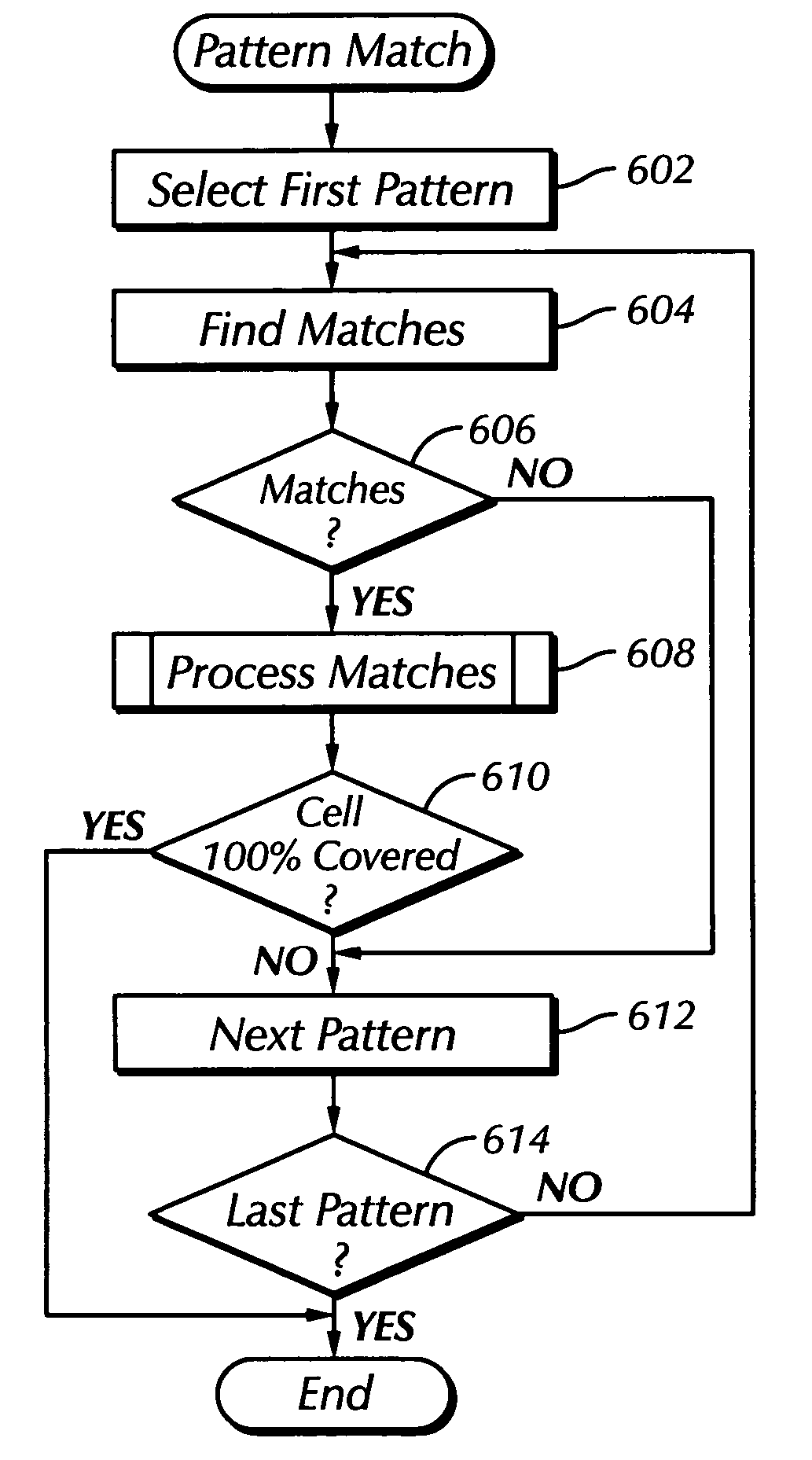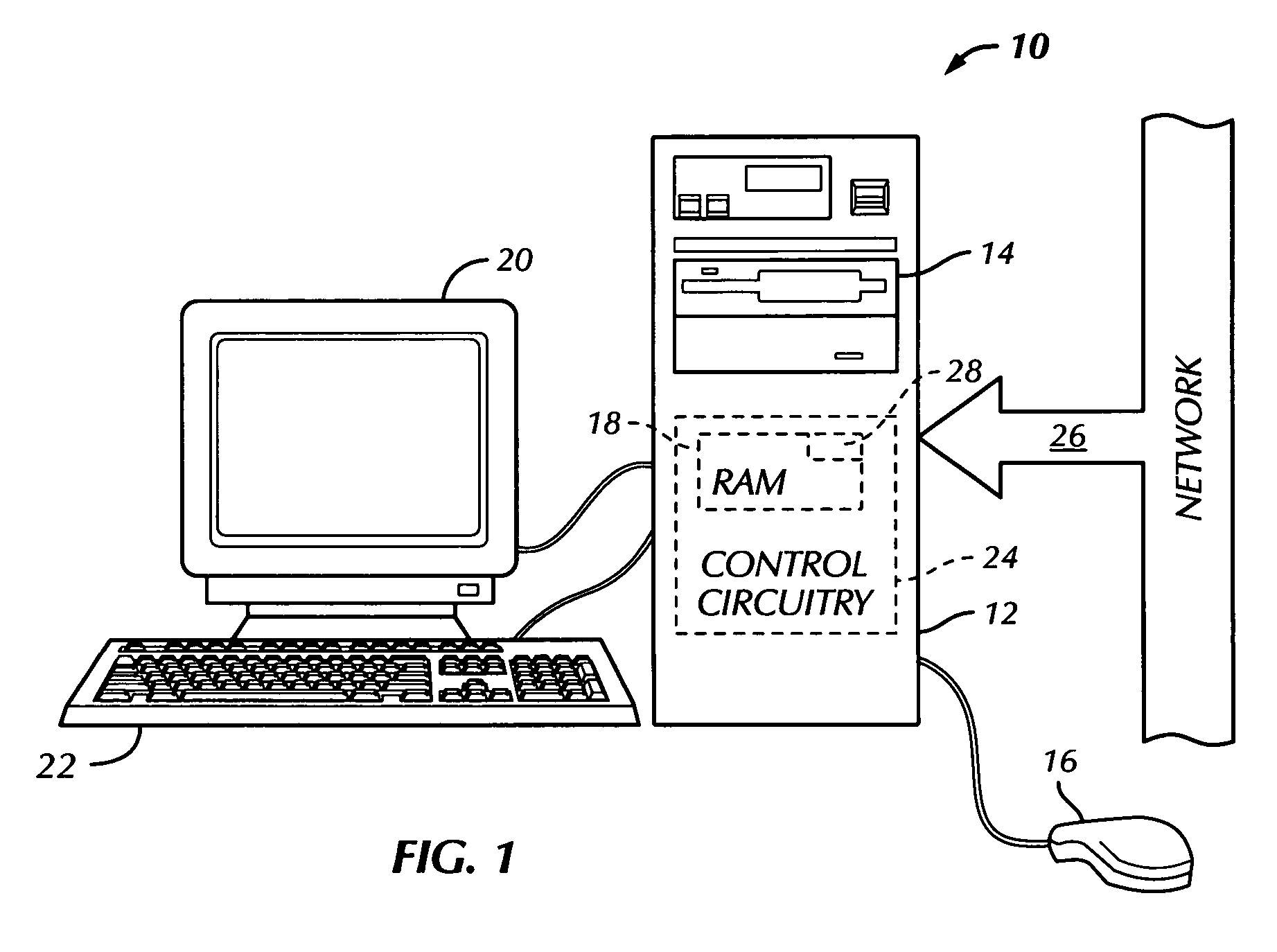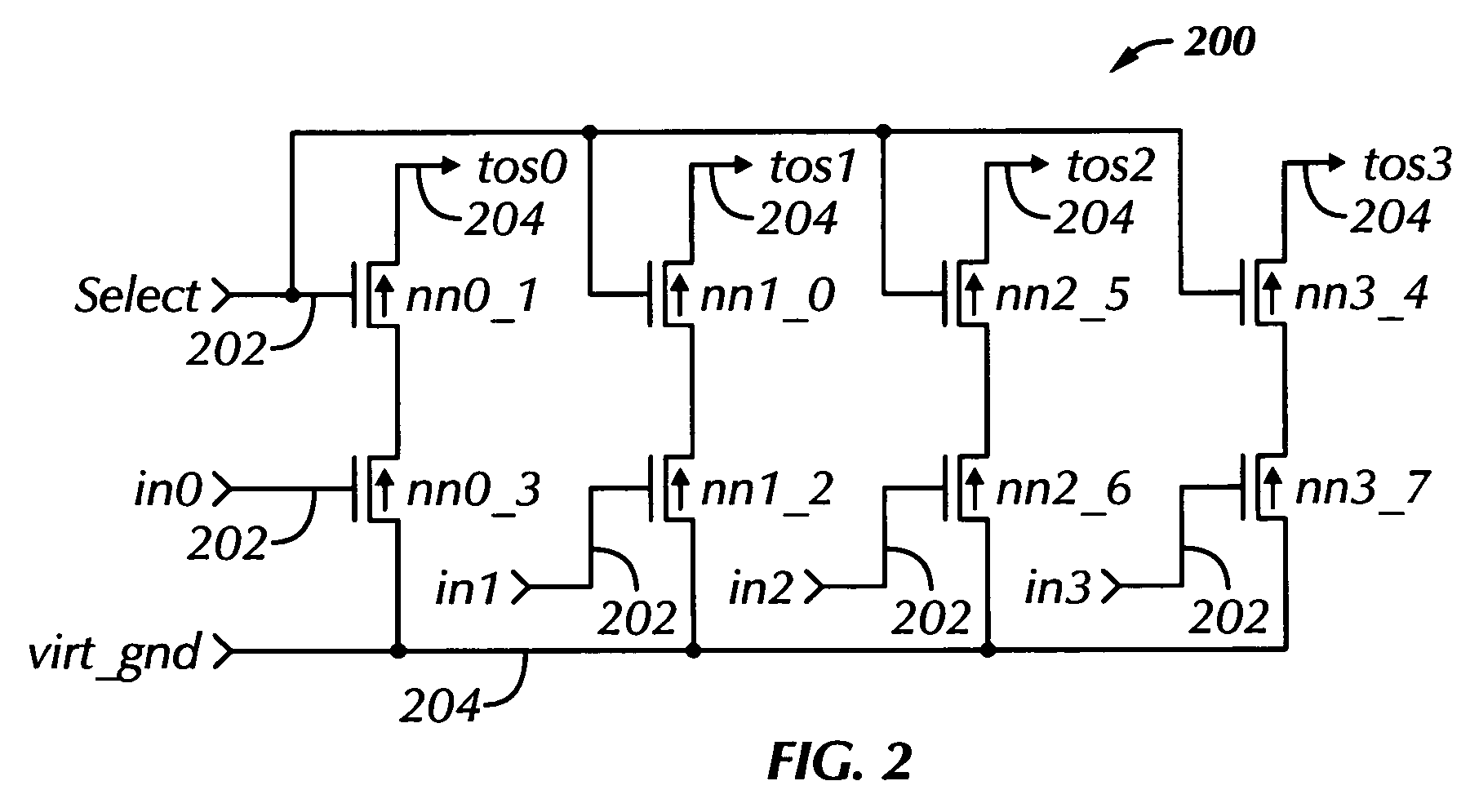Physical realization of dynamic logic using parameterized tile partitioning
a dynamic logic and tile partitioning technology, applied in the field of semiconductor device design, can solve the problems of inability to optimize certain areas, time-consuming and error-prone design of integrated circuits using transistor synthesis methods, and inability to provide predesigned library cells, etc., and achieve the effect of reducing the number of human intervention
- Summary
- Abstract
- Description
- Claims
- Application Information
AI Technical Summary
Benefits of technology
Problems solved by technology
Method used
Image
Examples
Embodiment Construction
[0020]The present invention is an automatic integrated circuit layout methodology and apparatus therefore that uses a collection of parameterized tiles. This disclosure describes numerous specific details that include specific structures, circuits, and logic functions in order to provide a thorough understanding of the present invention. One skilled in the art will appreciate that one may practice the present invention without these specific details. In addition, the present invention is described herein in the context of the layout of an integrated circuit implemented in N-Nary logic. Those skilled in the art will understand that the present invention is not limited to use with N-Nary logic designs, but can be applied to any static or dynamic logic design. Notwithstanding, given that the circuit and schematic examples shown herein are circuits implemented in N-Nary logic, readers unfamiliar with N-Nary logic may find the following brief discussion of the N-Nary logic design approac...
PUM
 Login to View More
Login to View More Abstract
Description
Claims
Application Information
 Login to View More
Login to View More - R&D
- Intellectual Property
- Life Sciences
- Materials
- Tech Scout
- Unparalleled Data Quality
- Higher Quality Content
- 60% Fewer Hallucinations
Browse by: Latest US Patents, China's latest patents, Technical Efficacy Thesaurus, Application Domain, Technology Topic, Popular Technical Reports.
© 2025 PatSnap. All rights reserved.Legal|Privacy policy|Modern Slavery Act Transparency Statement|Sitemap|About US| Contact US: help@patsnap.com



